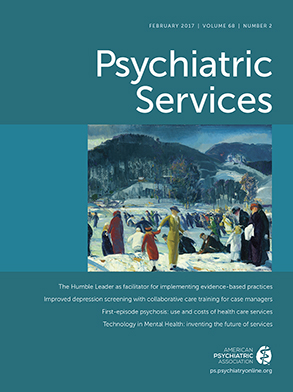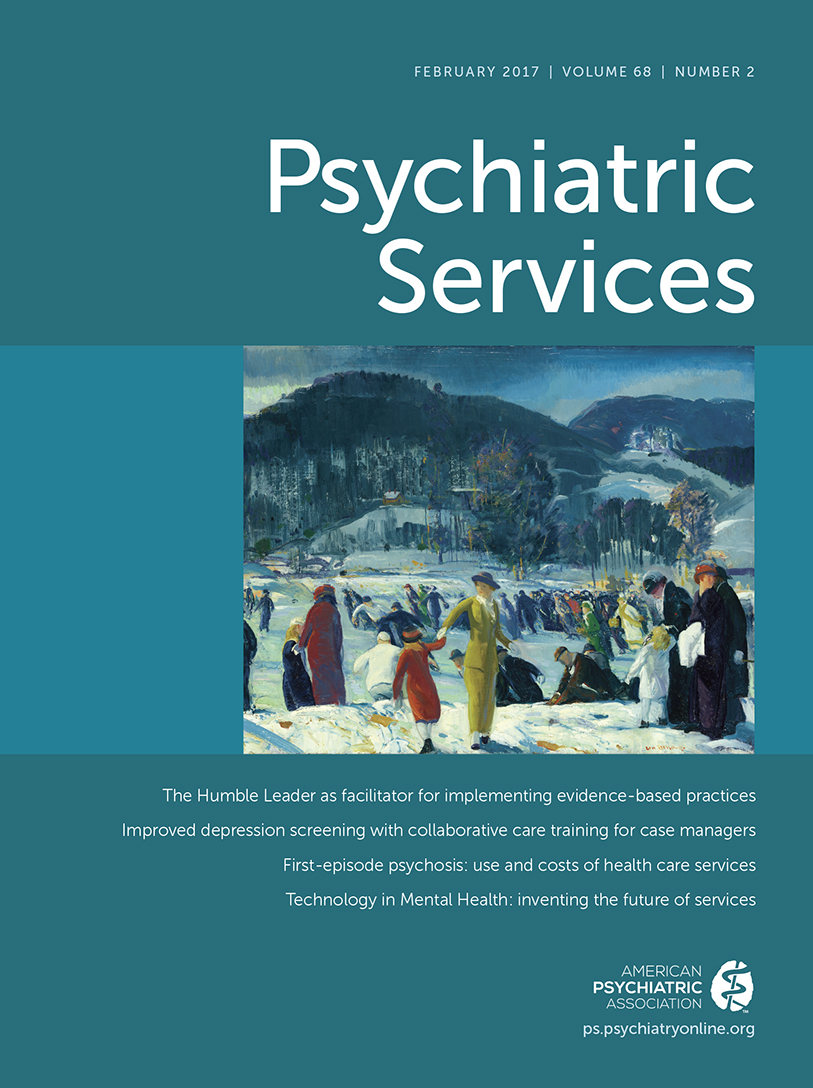The Domestic Violence Initiative was formed in 2014 as a collaboration between the Women’s Program in the Department of Psychiatry at Columbia University Medical Center and the New York City Mayor’s Office to Combat Domestic Violence. This collaboration, which receives support from the Chapman Perelman Foundation, piloted the provision of clinical psychiatric services on site at the Bronx Family Justice Center (BxFJC), one of a growing number of family justice centers (FJCs) nationwide that provide colocated social and legal services for survivors of intimate partner violence (IPV) and sex trafficking. The BxFJC offers case management, counseling, advocacy, and educational opportunities, as well as civil and criminal legal assistance. To our knowledge, no other FJC has colocated psychiatric care.
Our clinical team consists of a psychiatrist on site two days per week and an L.C.S.W. psychotherapist on site one day per week, along with clinical trainees under their supervision. Patients referred to our program by other service providers are survivors of IPV, sex trafficking, or both. They present at screening or follow-up at the BxFJC with requests for mental health care, behavioral disturbances, or difficulty with self-regulation. Each patient is evaluated for 90 minutes (or 120 minutes if in translation) by our psychiatrist, who is bilingual in Spanish and English. Treatment includes psychopharmacologic management and group and individual psychotherapy. The clinicians collaborate closely with other on-site service providers, including case managers, counselors, and legal staff. All services at the New York City FJCs are free of charge.
We surveyed staff and partner agencies at the four NYC FJCs at the outset of this collaboration about knowledge of mental health sequelae of IPV and attitudes toward integration of psychiatric services. Over 80% (N=195) of staff responded to the survey and identified among patients a high degree of untreated psychiatric symptoms and poor access to care. Among self-identified case managers and counselors, 75% (N=86) indicated that their clients would have better outcomes with additional psychiatric care but cited barriers to accessing care, such as geographic distance, lack of language fluency, lack of insurance, undocumented status, stigma, and mental health providers’ lack of training regarding IPV. In the survey and related focus groups, attitudes toward including on-site psychiatric services were generally very positive, although mixed with concern about stigmatizing survivors and impact on child custody cases.
From April 4, 2014, to March 1, 2016, our team received 168 referrals, and 106 were evaluated by our bilingual psychiatrist. We conducted a chart review to determine demographic characteristics of patients, initial psychiatric diagnoses, safety risk factors, and treatment history.
Of the 106 patients who were evaluated, 104 (98%) identified as female. Patients ranged in age from 18 to 65, with a mean age of 37. Of the 168 patients referred, 54% (N=90) spoke primarily English and 33% (N=55) spoke only Spanish; other languages included French, Fulani, Bengali, Ewe, German, Haitian Creole, Hungarian, Mandarin, Somali, Tagalog, and Twi.
The most frequent axis I diagnoses at evaluation were posttraumatic stress disorder (44%, N=47), major depression (46%, N=46), mood disorder not otherwise specified (NOS) (37%, N=39), anxiety disorder NOS (31%, N=33), and substance use disorder (10%, N=11). High rates of comorbidity were observed, with a median of two diagnoses and a range of zero to four diagnoses per patient. A total of 42 patients (40%) reported a prior suicide attempt, and of these, 15 (36%) never received mental health care, five (7%) reported abbreviated care (discontinuation of treatment after one or two visits), and two (5%) received psychiatric care only after multiple suicide attempts.
With the success of this privately funded pilot program, New York City is expanding the model to all five FJCs, with funding from the THRIVE NYC initiative (
https://thrivenyc.cityofnewyork.us). Psychiatric care provision is slated to be fully operational at all sites by mid-2017. We continue to collaborate with the city on the expansion and impact assessment of these colocated services.
This collaboration demonstrates the feasibility and acceptability of providing psychiatric services to IPV survivors in nonmedical, community-based settings. Our finding of a very-high-risk patient population with inadequate prior treatment highlights the need to improve access to care for survivors of IPV, as well as to educate mental health care providers and policy makers about the impact of IPV on psychiatric illness and risk of suicide. Given the multiple barriers to the detection of IPV in health care settings and the fact that IPV survivors are more likely to present for services in nontraditional venues, this collaboration offers a model to deliver culturally acceptable mental health services for IPV survivors.

